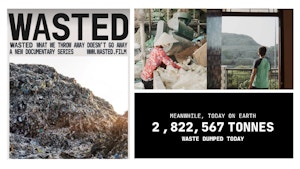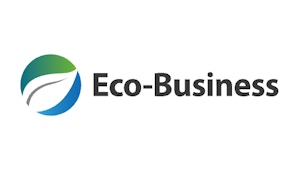Asia Pacific‘s leading platform for sustainable development
Vietnam Berita

New mapping of climate firms shows region rich in solutions but constrained by grids, finance and coordination.

Singapore, Vietnam, Thailand and Indonesia are now among the world’s fastest-growing electric vehicle markets, surpassing major economies in EV share of new car sales, a report from Ember finds.

Kebijakan & Keuangan
Climate ‘loss and damage’ should include supply chain impacts
Ensuring funds reach countries most in need, quickly and equitably, is climate finance’s biggest challenge.

Kebijakan & Keuangan
Taiwan unveils draft circular economy roadmap, eyes deeper collaboration with Southeast Asia
As Taiwan accelerates in circular industries, the test for Southeast Asia is whether the region can align with the island’s new circular economy roadmap fast enough to unlock advantages in cross-border trade.
Kebijakan & Keuangan
COP30, in numbers
Vietnam Opini

COP30 agreed to triple adaptation finance, but the fashion industry needs adaptation measures now.

In Vietnam, an impasse over feed-in-tariffs for renewable energy producers threatens foreign investors’ confidence in government policies.

Southeast Asian countries have struggled to stick to their promises to reduce coal use in their energy mix. High-level commitments must be translated into enforceable roadmaps, and private demand unlocked to acceelerate clean energy investments.

Pangan & Agrikultur
Reimagining agriculture for young people
An ageing agricultural workforce bodes ill for our ability to feed the world. To entice young people to work in food systems, policymakers should demonstrate the industry’s breadth, while providing them with the resources and skills to modernise farming and build sustainable, innovative agribusinesses.
Kebijakan & Keuangan
Climate resilience is a strategic investment
Vietnam Video

Launched as policymakers lock horns with petrochemicals lobbyists over a treaty to end plastic pollution, the documentary produced by Eco-Business asks why opportunities to solve humanity's waste crisis are being wasted. It will premiere in Singapore and screen on the sidelines of the upcoming COP28 climate summit.

Vietnam's wind market is thriving, but more work lies ahead if the country wants to power its booming economy without imperilling its people and the planet.

Southeast Asian nations are racing to bring clean, affordable power to their people, but one country is outrunning them all. How can states make their renewable energy transition a success?

In gridlocked, smoggy Southeast Asian cities, change is afoot to electrify transport and clear some of the world's most polluted skies. This video documents the pockets of hope for e-mobility around the most climate-vulnerable region.
Vietnam Podcasts

Kebijakan & Keuangan
Asean must learn how to ‘flex’ on global finance and sustainability standards: policy expert
The region has been historically underrepresented in leadership at global standard setters like the World Bank and International Monetary Fund. Sharath Martin, who holds positions in global accounting body ACCA and WWF-Malaysia, tells the Eco-Business Podcast what must change.

Southeast Asian energy ministers will meet in October to discuss the future of the region’s power grid. GEAPP’s Kitty Bu tells the Eco-Business podcast what areas they must collaborate on, and how finance and industry can help.

In the first of a podcast series featuring Southeast Asia's clean energy entrepreneurs, the CEO of Gurin Energy says that Asean countries will be left behind in artificial intelligence and robotics if the region does not connect its grid and deploy renewables at speed and scale.

Kebijakan & Keuangan
The race to insure Southeast Asia against climate risk
Asia lags the world in natural catastrophe protection. Part of the problem could be counting extreme weather losses only after they happen, industry insiders tell the Eco-Business podcast.
Vietnam Rilis Pers

UN Environment Programme (UNEP)
UNEP launches US$100 million programme to accelerate climate, nature action

United Nations Economic and Social Commission for Asia and the Pacific (ESCAP)
Safer streets, stronger futures: Making road safety everyone’s business

International Finance Corporation (IFC)
IFC and QBE Insurance team up to drive building resilience in Asia Pacific

Institute for Environment and Sustainability, Lee Kuan Yew School of Public Policy, NUS
Power without borders: Charting Asean's path to an interconnected energy future

United Nations Economic and Social Commission for Asia and the Pacific (ESCAP)
Navigating trade headwinds: Asia and the Pacific must reinforce trade resilience amid global uncertainty

Imagine H2O Asia
Announcing Imagine H2O Asia’s 6th cohort of water entrepreneurs
Vietnam Riset

Eco-Business, supported by Boehringer Ingelheim
Moving towards a rabies-free Southeast Asia

BirdLife International
State of the World's Birds 2018—taking the pulse of the planet

Eco-Business
Freezing in the tropics - Asean's air-con conundrum




